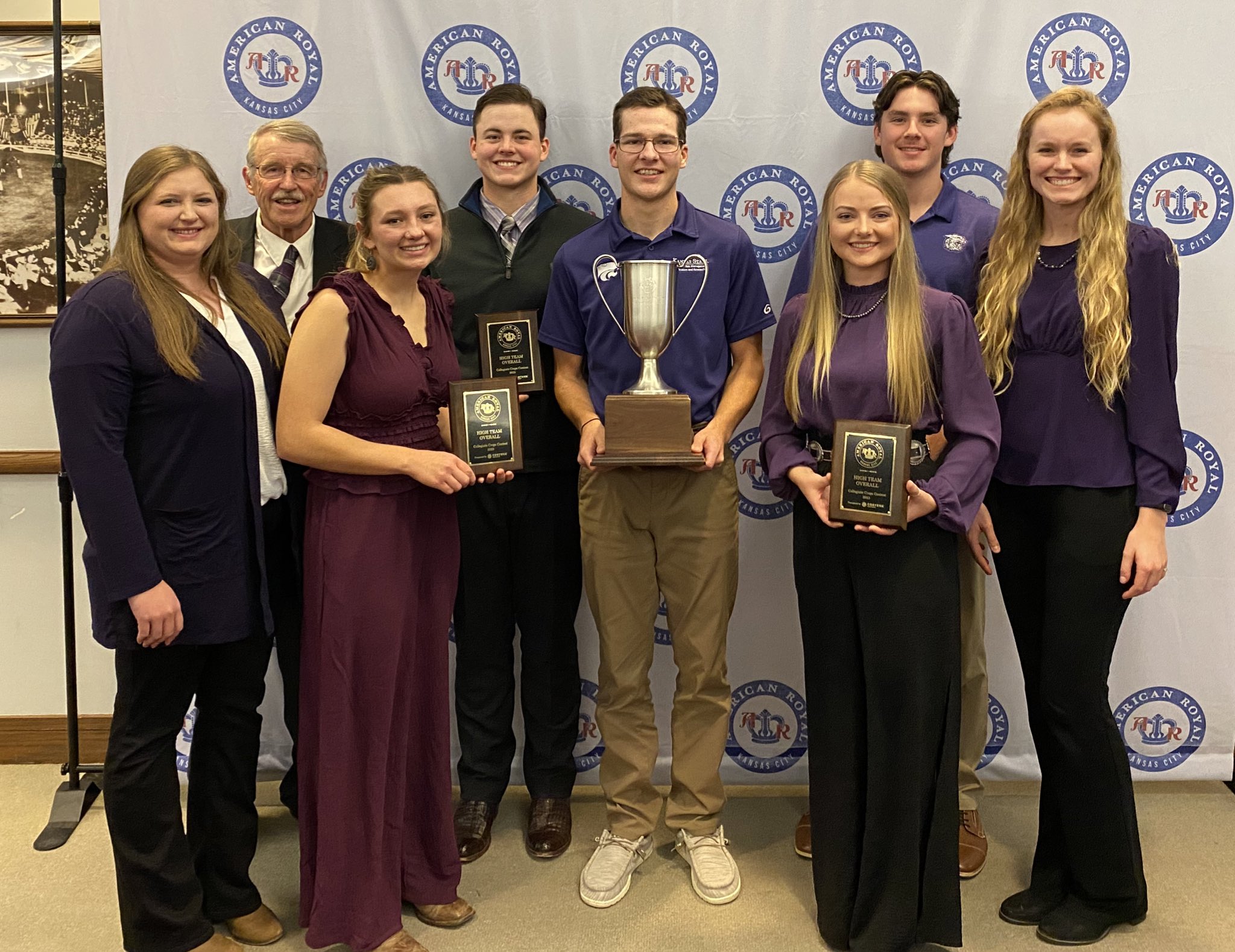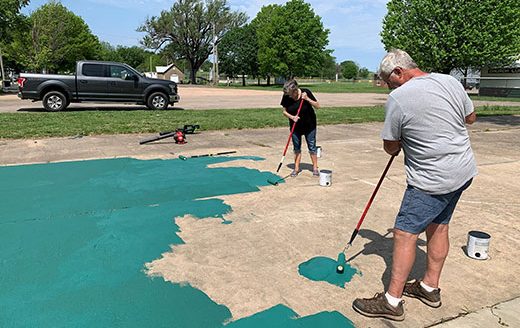Team continues dominance, wins for 32nd time in past 100 years
In the highly competitive world of collegiate crops judging, one university has flexed its muscle like no other: Kansas State University.
The 2023 squad rolled to the national title in mid-November, winning the Kansas City American Royal Collegiate Crops Contest and the Chicago Collegiate Crops Contest.
K-State teams have now won the collegiate crops contest championship outright in 18 of the past 25 years. In the 100-year history of crops competition, K-State has won or shared the title 32 times. Texas Tech is second best with 21 titles.
Renae Sinclair, a junior from Alamosa, Colorado, was the overall individual champion, leading a 1-2-3 sweep by K-State. Junior Landon Trout (Scott City, Kansas) and sophomore Quinten Bina (Pilsen, Kansas) were second and third, respectively.
K-State’s national title was powered by first place finishes in all three judging categories: grain seeding, seed analysis and identification.
“Such a sweep of all three contest components and the top three individual placings at both contests is very rare, and has only been accomplished four times before, all by K-State,” said Kevin Donnelly, a former head coach who is now an adviser for the team. “This year’s team score was the fifth highest ever in the Chicago contest.”
Donnelly said Sinclair’s winning score in Chicago was the third highest ever recorded in that event, and the best since 1963. Only 19 students have ever won the Kansas City and Chicago events in the same year—11 of those are from K-State. Sinclair is the fifth K-State student in the past 10 years to pull off the feat.
Trout had the eighth highest score ever at Chicago.
In the contests, participants are required to identify 200 plant or seed samples of crops and weeds; grade eight samples of grain according to Federal Grain Inspection Service standards; and analyze ten seed samples to determine what contaminants they contain.
“These crops contests teach students the importance of hard work and dedication, valuable plant and seed identification skills, an appreciation for detail and how to be a good teammate and graceful winner or loser,” said the team’s coach, Rachel Veenstra.
“The skills they learn translate into nearly any profession and the identification skills in particular serve them well in future jobs, as well as certifications such as the certified crop advisor program. Some of our former crops contest competitors have gone on to be leaders in their communities, states and beyond.”
Additional K-State team members are junior Molly Kane (Paola, Kansas) and sophomore Joel Bryan (Hiawatha, Kansas). The team is coached by Veenstra, Sarah Frye and Donnelly, and sponsored by the Kansas Crop Improvement Association, K-State Department of Agronomy, K-State College of Agriculture, and the K-State Student Government Association.
The students received a team scholarship for winning the Kansas City contest, and individual scholarships for the top five finishers in Chicago.
“The win is an excellent reflection of our agronomy students’ hard work and dedication to excellence, in and out of the classroom,” Veenstra said. “With such a rich history of success in the collegiate crops contest, the pressure is high to perform well.”
Raj Khosla, head of K-State’s Department of Agronomy, said the team’s success is an indication that “K-State educates some of the brightest agronomy students in our nation.”
“Thirty-two wins in 100 years is a testament to their knowledge, education and preparation by excellent faculty coaches,” he said.
The American Royal coordinated the Kansas City contest, with Corteva AgriScience as the primary awards sponsor. Additional sponsors were CHS, the American Society of Agronomy, Association of Official Seed Analysts, and South Dakota Crop Improvement Association.
The primary sponsor of the Chicago contest was the CME Group. Additional donors in Chicago included the Crop Science Society of America and the Society of Commercial Seed Technologists.




